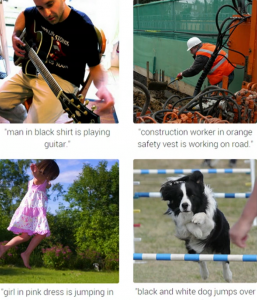 For decades researchers have experimented with machine learning—software that can improve with experience without being reprogrammed. That research has paid off in a number of applications, including the intelligent search engines that we use every day. But recent breakthroughs in a field called deep learning are likely to bring radical transformations to our lives very soon. This TED Talk by Jeremy Howard explains the technology and touches on a few applications and implications. Spoiler: there’s good news and bad news….
For decades researchers have experimented with machine learning—software that can improve with experience without being reprogrammed. That research has paid off in a number of applications, including the intelligent search engines that we use every day. But recent breakthroughs in a field called deep learning are likely to bring radical transformations to our lives very soon. This TED Talk by Jeremy Howard explains the technology and touches on a few applications and implications. Spoiler: there’s good news and bad news….
[ted id=2155 lang=en]
Category: 15.4 Pattern Recognition: Making Sense of the World
 When Apple released the iPhone, the world changed. People were carrying powerful computers in their pockets and purses. Developers released a bevy of creative apps to harness that always-available computing power. Today it’s hard to imagine a world without smart phones. Could Google Glass, the wear-on-your-face computer from Google, be the beginning of the next revolution in personal computing? This short NPR story explains how early adopters plan to use their prototype high-tech specs.
When Apple released the iPhone, the world changed. People were carrying powerful computers in their pockets and purses. Developers released a bevy of creative apps to harness that always-available computing power. Today it’s hard to imagine a world without smart phones. Could Google Glass, the wear-on-your-face computer from Google, be the beginning of the next revolution in personal computing? This short NPR story explains how early adopters plan to use their prototype high-tech specs.
npr.org/blogs/alltechconsidered/2013/04/17/177557810/Seeing-The-World-Through-Google-Colored-Glasses
Of course, not everyone views Google Glass through such rose-colored lenses. This Saturday Night Live skit mocks the idea that Google Glass can be used discreetly; other detractors question our need to become even more dependent on our technology.
mashable.com/2013/05/05/snl-google-glass-parody/
While you’re learning a language you can help with the world’s biggest translation project. This Wired article explains how Duolingo hopes to translate the whole Internet into a resource without language barriers.
wired.com/business/2012/09/translate-the-web
www.ted.com/talks/luis_von_ahn_massive_scale_online_collaboration.html
If you use the web, you’re almost certainly part of a global team that’s digitizing the world’s books, one word at a time. How are you helping digitize one hundred million words each day? In this entertaining, mind-expanding TED talk, Luis von Ahn explains how a group of researchers created reCAPTCHA and turned one of the web’s big time-wasters into a crowdsourcing project involving ten percent of the world’s population. He also describes an emerging project to apply the same visionary approach to language translation.